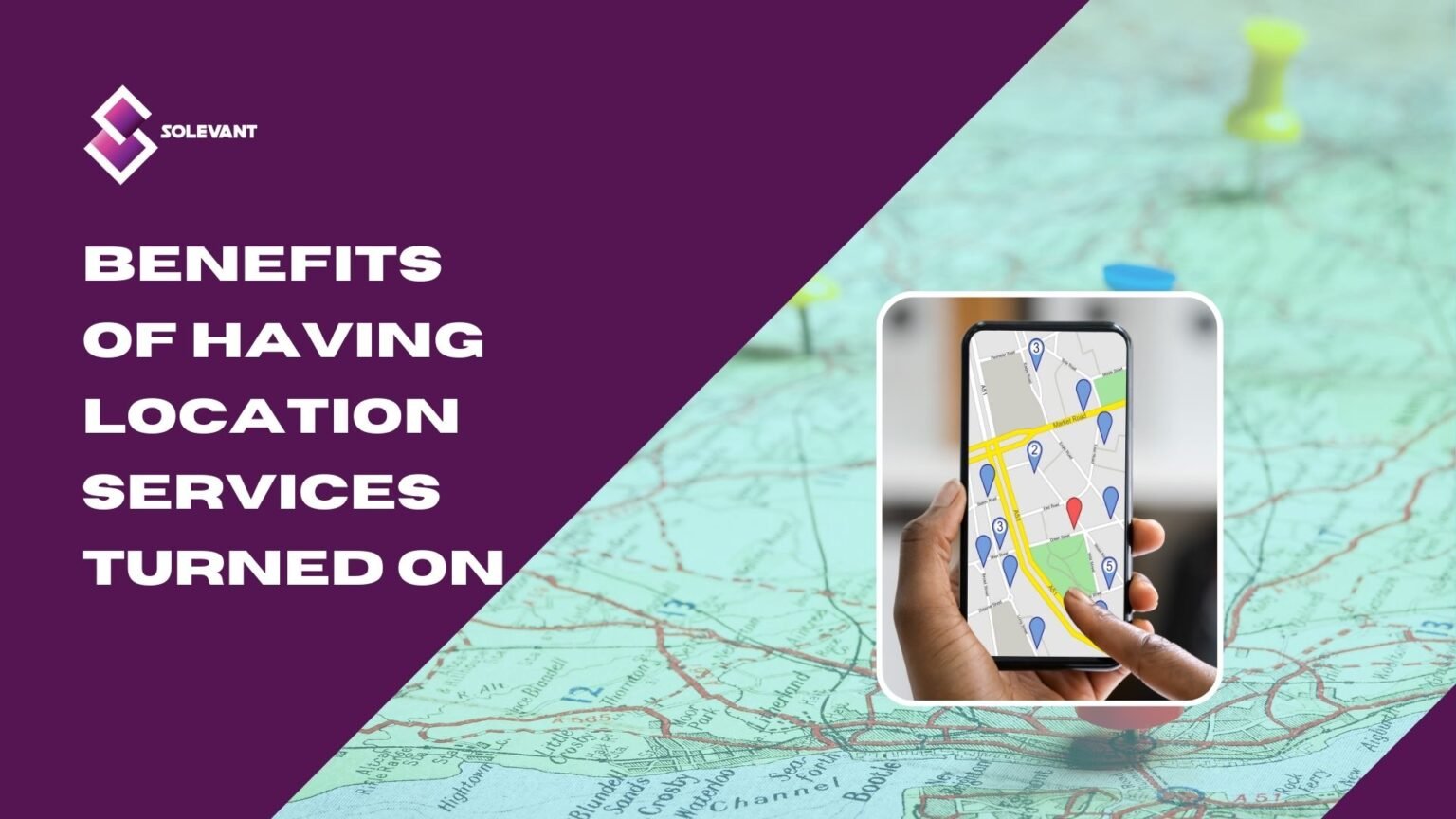As stated by Statista, In 2006, only 22% of American adults were even aware of podcasting. By 2021, the number of people had increased to 78 percent. An estimated 120 million people in the United States listen to podcasts regularly.
According to recent forecasts, the number of podcast listeners will reach 160 million in 2023 after yearly increases of around 20 million. In other words, podcasts are becoming more popular than ever before.
For businesses, a podcast is an excellent way to connect with potential customers. It is also a powerful marketing tool that can help promote your brand and sell your products or services.
If you’re thinking of starting a podcast business and want to be a successful podcaster, this guide has everything you need. It will give you step-by-step instructions for setting up your podcast, getting sponsorships, and attracting listeners.
Why Start a Podcast Business?
There are many reasons why you should start a podcasting business. You may be passionate about a common misconception and want to share your knowledge. Or you’re looking for a new way to connect with potential customers, promote your brand, and make extra money.
Podcasting can be a great business venture for several reasons:
You Can Reach a Large Audience
Starting a podcast business is an excellent way to reach a large and diverse group of people. Podcasts offer a unique opportunity to connect with listeners worldwide and share your message or product, regardless of location.
Podcasts are the latest platform for people to share their stories and reach audiences worldwide. Podcasts offer a unique way to communicate complex ideas with interesting stories in an easily digestible fashion.
They can also help focus on topics of interest, create a dialogue between two parties, or interact directly with listeners. Even novice podcasters can access this new social platform, tap into a large audience, and creatively express themselves with minimal equipment and cost. With podcasts, anyone can now have an equal seat at the discussion table.
You Can Make Money From Sponsorship and Advertisements
If you have an entertaining and well-promoted podcast, it can be an effective tool for making money. Many podcasters now use sponsorships and advertisements to monetize their programs and gain financial stability.
Sponsorship deals involve providing mini-commercials or product mentions in an episode in exchange for brand payment. Podcast ads are audio ads read by the host that bring small payments but often lead to bigger sponsorships.
Providing content as a podcast allows business owners to connect with their target customers on a more personal level. You can create deeper relationships and encourage loyalty, and an established presence in the podcast space will easily draw potential customers who naturally seek out this medium for information.
It’s possible to make a good living through podcasting if you have a quality product consistently updated with fresh content that appeals to a wider audience. Remember, patience is key, and success won’t happen overnight in this income stream!
You Can Build Relationships With Your Listeners
It can be challenging to connect with listeners on a deeper level when using traditional means of communication, like radio shows. However, podcasting can allow you to build relationships with your listeners because it allows for a longer format and more personal conversations.
By probing topics in-depth and engaging in a dialogue with your audience, you can create a community of fans, improve your content, and expand your reach.
You’ll also get instant feedback from your listeners that will help shape new ideas and improvements for future podcasts. Podcasts are more than just another way to create content; they are an effective tool to develop real relationships with those who listen.
You Can Improve Your Public Speaking Skills
Developing your public speaking skills can be intimidating, however, podcasts can help! Podcasts offer excellent and accessible professional presentations that can quickly get you up to speed.
Listening to various speakers can help you understand and appreciate the nuances of a speech. Not only that but understanding the structure of how top speakers organize their thoughts is essential for any speech or presentation. You’ll be well on your way to becoming comfortable behind the microphone by listening to podcasts regularly alongside your practice.
You Can Work From Home
Working from home has recently become a viable option for many people in various industries. With the rise of streaming platforms, podcasting has emerged as a new way of making money at home.
With podcasting, you can create your radio-style show, talk about topics you’re passionate about, and get paid while doing it. You can also invite remote guests to your show, right from the comfort of your house.
You don’t need much to start working from home with podcasts; you only need a quality podcast microphone, an internet connection, and dedication to creating great content. Podcasts have opened up so many different opportunities — there’s something for everyone, no matter your level of experience or skill.
You Can Be Your Boss
Starting a podcast is a great way to be your boss and explore topics that you are passionate about. It’s an empowering and creative way to express yourself while also learning something new in the process.
You can gain loyal listeners with thoughtful content and engaging conversations, possibly even monetizing your hard work simultaneously. When you start a podcast business, you’re in charge. You can decide what podcast topics to cover, how often to release new episodes, and what podcast guests to invite to the show.
Common Misconceptions About Podcasts
You Have to Buy Expensive Equipment
Podcasts have become increasingly popular over the past few years, and people realize that they can save money by investing in expensive equipment to succeed. While some may opt to use higher-end gear, you only need a simple laptop and microphone to create a podcast.
Furthermore, many available audio editing programs are quite affordable, making it easier for content creators on a budget to produce quality sound. Even if you choose to pay for higher-end recording software, it doesn’t have to be overly expensive. Creating a podcast doesn’t require the same level of investment as other content creation types.
You Need to Have a Large Number of Followings
In the age of increasingly crowded digital spaces, it’s easy to assume that a successful podcast needs hordes of followers, but luckily this is only partially true. While it’s good to have many fans and listeners, there is still plenty of potential for those with fewer followers to have engaging conversations, offer unique perspectives, or simply enjoy creating content.
Additionally, larger followings bring challenges such as dealing with displeased consumers or providing enough content to keep listeners coming back every week or month—something many podcasts with smaller numbers are well-equipped for, given the quality and consistency that come with intimate podcaster-listener relationships.
In sum, growing your podcast’s reach is important, but don’t let having few (or few relative) followers stop you from creating great audio content.
Podcast Episodes Should Be Long
Podcasts are a great way to get creative and have engaging conversations, but one common misconception is that episodes should be long. In reality, podcast episodes can be as short or as long as the creator desires; they can be simple and brief to provide a great listener experience.
A shorter episode format allows the host more freedom in choosing topics of interest, and listeners often appreciate quicker content that quickly gets to the heart of the matter. So don’t feel pressured to make your podcast episodes long – sometimes less is more!
Podcasts are Dying
Despite what some pessimistic mass media outlets would have you believe, podcasts have gained popularity in recent years. Far from dying, the podcasting industry is alive and growing.
Newer generations of listeners have recently discovered the joys of audio content– with more than 1 million new podcast shows created just last year alone! The quality and availability of audio content such as podcasts prove that, far from being dead, these mediums of expression and entertainment are thriving like never before!
You Need to Have a Specific Skillset
Even though podcasting has become commonplace, the medium still has an air of mystery. One of the most popular misconceptions about podcasts is that they require a specific skill set that you must learn or hire a professional to make them sound credible and engaging.
This simply isn’t true – anyone speaking conversationally can produce a podcast. All it takes is an eye for detail, creativity, organization and enthusiasm, and a willingness to experiment with different formats and topics. As long as you keep these basic principles in mind when creating a podcast, you should be able to produce one that captures your listeners’ attention.
Podcasts Can’t be Monetized
One of the most pervasive misconceptions about podcasts is that they cannot be monetized. In reality, several routes can be taken to create an income stream through podcasting.
Podcast advertisements, sponsorships, and memberships are all viable ways to bring in money from their podcast. These days, with platforms making it easier than ever to start a professional and successful podcast, turning this creative outlet into monetary success is within the reach of almost anyone.
How to Start A Podcast Business
Choose a Niche
The first step is choosing a relevant and engaging topic or niche for your show. This is important because it will give your audience and listeners an idea of what topics and types of content to expect from your show.
Take some time to do research and brainstorm ideas before making a final decision; exploring trends and different podcasting topics can help create a more exciting show that stands out from the rest.
There is a podcast niche for everything, including hobbies, books & authors, health & fitness, business education, and more. Podcasts can be entertaining and informative; they provide an excellent platform for content creators to share their knowledge and passion with the world.
Listening to podcasts can help people stay informed on topics from all over the world or niche down to one specific area that interests them. It’s easy for listeners to find whatever subject matter they seek by searching online for keywords or looking at existing lists of popular podcast niches.
Choose a Podcast Name
Before taking the first steps to monetize your audio content, it is important to take the time to secure and settle on a podcast title or name that best fits your content and the message you want to convey.
Deciding on a podcast name is one of the most important decisions any podcast producer will make. It’s new listeners’ first impression and represents the branding that could make or break a show’s chances of gaining an audience.
Too often, podcasters choose names with no real thought or understanding behind them, so it’s worth searching for something you think will properly stand out and reflect the content you’ll be producing.
Consider what kind of podcast content you want to send to potential listeners and how a single title can best represent your current (and future) topics. Additionally, try to select a name that will be memorable and easy for users to find when searching online platforms.
Taking the time now to choose the right name will provide clarity and direction as you travel through this process, so be sure not to rush it. Once you decide on a name, stick with it; a change of heart could cause more confusion than clarity.
Compose a Podcast Description
Writing a captivating description for a podcast episode is essential to draw listeners in and make them curious. Aim to include interesting hooks that introduce the topic of your podcast, such as witty facts or intriguing questions.
Ensure also to provide relevant background information about the episode description like why this particular episode is worth tuning into; if you don’t, it won’t help your show stand out from other podcasts populating the Internet.
Lastly, end by briefly explaining how the episode will unfold and how it promises to engage and entertain listeners. With enough thought and effort put into creating an eye-catching caption, your podcast can become just as attention-grabbing as others on its platform!
Build an Online Presence
Building an online presence for your podcast is essential to its success. Developing a podcast website and social media accounts allows you to build relationships with potential listeners and expand the reach of your show.
Creating a podcast website adds credibility and establishes your podcast as more than just something you throw together on the fly. Sharing content on social networks also helps you gain awareness of your show by engaging with people interested in similar topics, which can lead to new subscribers.
You can set up a blog or newsletter so subscribers get regular updates about upcoming episodes. With careful planning and an understanding of digital marketing, building an effective online presence will help you rapidly grow your podcast’s audience.
Make a Logo and Artwork for Your Podcast
Making a logo and artwork for your podcast can be an exciting project. It is the perfect opportunity to create something unique, representing your hard work and enthusiasm for your podcast. Consider what elements you want to include in the podcast artwork, such as symbols, colors, or taglines.
If designing from scratch is manageable, many resources are available to inspire you. You can also get inspiration from other podcast logo templates. Even if you decide to use a service like Canva or Fiverr, they can help turn your vision into reality quickly and affordably.
Making a memorable and recognizable podcast artwork or logo is incredibly important. It gives people something to look at when they see your podcast name on a list, which can be the difference between them checking out your podcast versus not paying any attention to it.
Having an eye-catching logo will also help brand recognition and make it easier for people to remember your show, creating more regular listeners. Plus, with podcasts competing in such a crowded space, high-quality podcast cover art set one apart and give the listener something unique.
Purchase Podcast Equipment and Software
If you’re interested in starting your podcast, you’ll need the right podcast equipment and software. Ensuring you have the latest tools to record and broadcast your podcast is essential if you want it to succeed.
You can create amazing sound quality with just a few items, such as a USB condenser microphone, headphones, and an audio interface. Add in some editing software for post-production, and you’re ready to go. With podcast hardware and software, you’ll have everything you need to start creating your content with professional-quality audio.
Choose a Podcast Hosting Platform
Podcast hosting services allow the creation, distribution, and monetization of digital audio files through podcast networks. These platforms offer technical support and other tools to assist users with managing their podcasts. They also provide podcast analytics, which give insight and understanding into how listeners interact with the content.
With so many different popular platforms, like Apple Podcasts, Spotify, Anchor FM, and Google Podcasts, it’s important to compare features, reliability, and cost to select the right platform for your podcast.
Consider things like storage size, bandwidth allowance, and audio quality when making your decision. Additionally, look into what kind of analytics the podcast hosting provider has to offer and any additional services that could be useful to help promote your podcast.
Promote and Publicize your Podcast
Promoting and publicizing your podcast is essential for attracting listeners. Use traditional methods such as print papers, flyers, and postcards or digital methods such as email marketing, social media campaigns, and SEO optimization to reach your target audience.
Network with other successful podcasters in the same field and search for people supporting similar content to get more exposure. Monitor internet comments, review videos, and participate in forums.
Showcase the work of others by mentioning them on social media channels. Build relationships with influencers in the space, then approach them to get some impactful coverage of your podcast.
Additionally, cross-promote across multiple content sites and try to post each week consistently so listeners know when they can expect content from you – consistency builds loyalty!
Put Out Podcast Episodes Consistently
Releasing podcast episodes consistently is important for keeping loyal listeners engaged and interested in your show. By regularly providing fresh episodes, you will keep your listeners returning for more content.
Additionally, releasing episodes consistently conveys to potential new listeners that your podcast is credible and worth their time. To ensure consistency, it’s important to set up an orderly process for creating and editing each episode.
Investing the necessary time and resources upfront can pay dividends in the long run by ensuring your show is seen as reliable and high-quality. With the right plan in place, there’s no limit to what can be achieved by putting out podcast episodes consistently!
How to Make Money From Podcasting
Sponsored Ads
Podcasting is an increasingly popular form of media and offers a great way to make money from your favorite hobby or passion. However, one key aspect of successful podcasting lies in leveraging the growing trend of sponsored ads.
Sponsored ads involve having other businesses pay you for simply mentioning their product or service as part of your podcast episode. In many cases, sponsoring businesses will even provide resources such as copywriters, audio editors, and other professionals to ensure that their ads are both on-brand and beneficial to listeners.
With the right combination of creativity and research, securing sponsored ad opportunities can help you generate consistent income while still having fun with your hobby!
Tips and Donations
Through the donation functionality of popular podcasting apps like Anchor, listeners can directly donate funds to podcasts they believe in. Similarly, many podcasts offer “tip jars,” essentially links to PayPal, where listeners can show their appreciation in small amounts. If both avenues are adequately leveraged, turning a profit through podcasting seems plausible!
Affiliate Codes or Links
One potential method of monetization is through the use of affiliate codes or links. When a listener uses your code or link to make a purchase, you receive a portion of the sale. This could be done for physical products, such as books or tech gadgets, or digital products, such as online courses or recording software.
Promoting your podcast to drive sales and profit from affiliate products can take some time. Still, once you gain an audience that trusts what you say, they’ll be interested in the products you recommend and subscribe to them through your affiliate links.
Selling Merchandise
One of the popular options is to sell merchandise, such as t-shirts, hats, hoodies, and more, featuring designs related to your show. It’s a way for fans to express their allegiance to your podcast via downloads and actual merchandise.
Moreover, it can help spread your show’s visibility and bring in continual revenue if you use a site like Patreon or Shopify that allows direct sales immediately. You only need to create a great design merged with your show logo or artwork. If done wisely, investing in producing and selling related items can reward dedicated listeners with unique products and financial gain!
Gated Content or Memberships
Gated content or memberships are effective ways to make money from podcasting. By limiting access to certain episodes, creating bonus materials, or creating a membership tier for listeners, you can access more revenue streams to support your work.
Joining higher-level plans may grant subscribers exclusive ad-free content or private streams with the host. You can offer tiered subscription packages that vary according to the benefits associated with each level. This creates a consistent revenue stream and allows you to scale as your following grows.
FAQs on How to Start A Podcast Business
A basic setup with a USB microphone and recording device should cost less than $100. If you want to improve your podcast recordings’ quality, invest in additional equipment, like a microphone pop filter or recording software. The cost of this additional equipment will vary depending on the quality you’re looking for.
You can make money by monetizing your show or through sponsorships. You can also earn money through affiliate marketing or selling merchandise related to your podcast. You can also use crowdfunding platforms like Patreon to raise money from your listeners.
The frequency of new episodes will vary depending on your show’s format and schedule. However, most podcasts release new episodes every week. As a beginner podcaster, you can release new episodes every other week or monthly. Once you get into a routine, you can increase the frequency of your releases.
Podcast production times are between 30 minutes and 1 hour long. If you’re just starting, keep your episodes shorter to get into a regular recording schedule. As you get more comfortable with podcasting, you can increase the length of your episodes.
While it can be difficult to monetize a podcast in the early phases, some dedicated podcasters have been able to build an income from their efforts. Whether your goal is to generate a small amount of money from your podcast or turn it into your main source of income, there are many strategies you can use – such as sponsorships, advertising, and offering products or services – that can help you get there. With continued focus and dedication, anyone can realize their podcast dream.
Conclusion
Hosting a successful show can give your business ongoing visibility and establish an enduring promotion platform for your products or services. It’s worth investing in and using radio networks to access listeners worldwide.
Podcasting is a great way to share your voice and connect with people who share your interests. If you’re sure of starting a podcast business, start planning to begin and invest in good podcasting equipment and a good podcast hosting provider.
Release new episodes regularly and promote your show so people can find it. Be sure to follow the steps outlined in this article. With a little effort, you can build a successful podcast that people will love!







